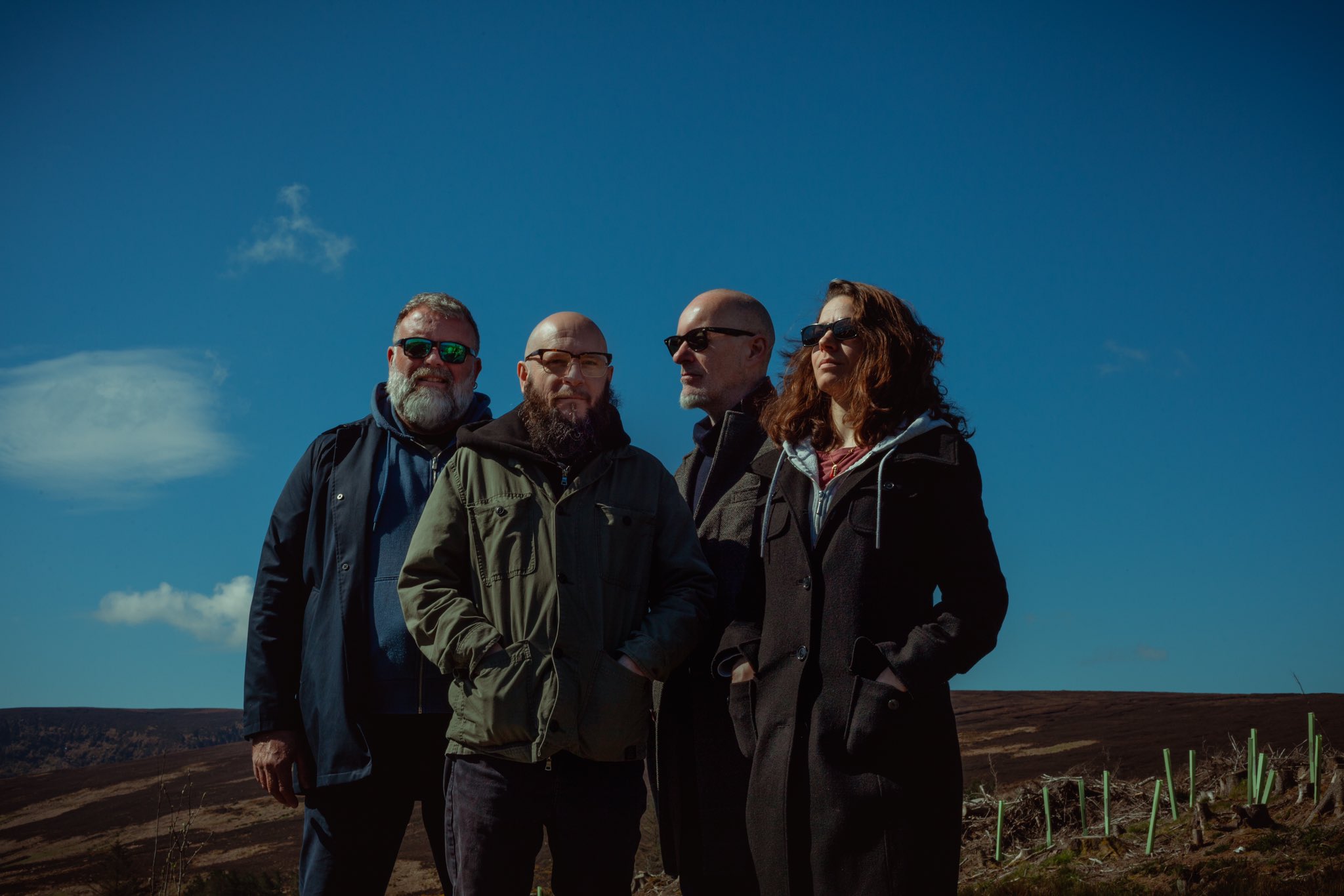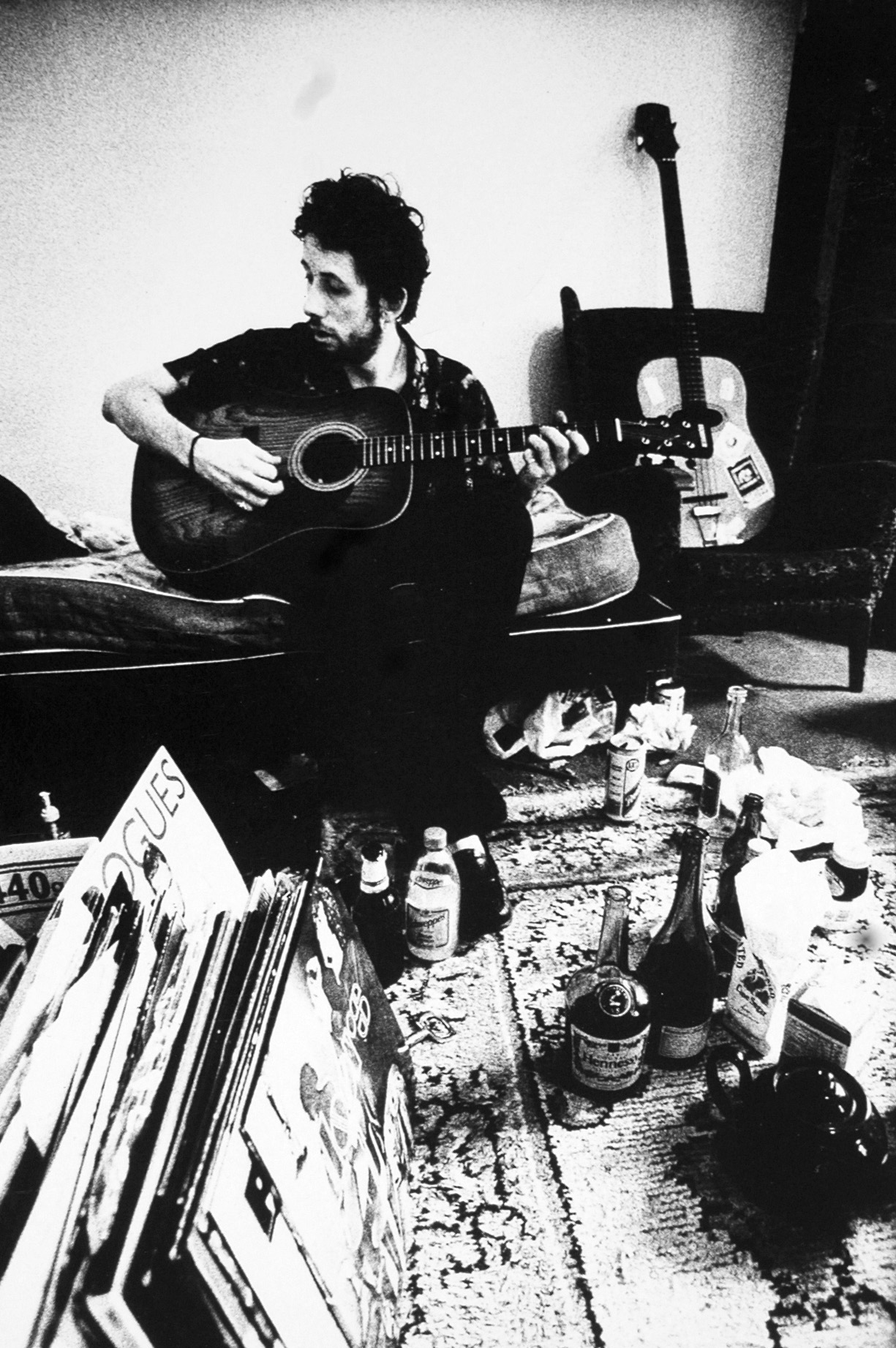- Music
- 15 Jul 24
A Lazarus Soul: "I put more into writing these songs than I’ve ever put into anything we’ve done before"

Brian Brannigan and his A Lazarus Soul bandmates discuss their eagerly anticipated new album, No Flowers Grow In Cement Gardens.
“It’s important,” Brian Brannigan remarks at one point during our interview, “to collect the small stories.”
They’re words the Finglas-raised artist and his band, A Lazarus Soul, have lived by for over two decades – with his fearlessly direct and deeply compassionate songwriting proudly embracing the local over the universal, to capture what Brian himself describes as “the minutiae of life.”
That ethos came particularly to the fore on A Lazarus Soul’s fifth album, 2019’s The D They Put Between The R & L, a project that served as a crucial breakthrough for the band, in terms of both their approach and their reach. Authentically tapping into the joys, concerns and sorrows of a city’s people, their suburb-dwelling descendants, and those cast out to the margins of society, the LP earned spots on numerous end-of-year lists, and has clocked up over a million Spotify streams – while its songs have been praised by Cillian Murphy, and covered by Christy Moore.
Five years later, Brian and his bandmates Joe Chester, Anton Hegarty and Julie Bienvenu (a line-up that’s remained steady for the past 13 years, despite Joe and Julie having lived in France for half of that time) are back with their eagerly awaited new album, No Flowers Grow In Cement Gardens.
“I felt huge pressure in writing it,” Brian tells me, during a visit to the Hot Press office with Joe and Anton. “Not to follow-up [The D...]. But we had great times with the last record, and we got great gigs that we didn’t get before. So for the band, to keep that going, I put more into writing these songs than I’ve ever put into anything we’ve done before.”

A Lazarus Soul. Credit: Kieran Frost
Although The D… saw A Lazarus Soul branded with a folk label by several commentators, the new album finds the band reconnecting with some of their other expansive influences.
“The folk thing was a product of the circumstances in which we made that album,” Joe reflects. “It was an album made out of a suitcase. But Brian’s songs are strong enough to withstand any kind of contextualisation – you can play them in any way, and they’ll survive.”
However, it was only in more recent years that Brian properly found in himself the raw, Dublin-rooted voice that communicates those songs so powerfully.
“I was very depressed about my voice after [2014’s] Last Of The Analogue Age,” he admits. “I opened up with a ballad, and for the rest I was singing in this kind of post-punk voice. I felt it was lacking in authenticity. For four years, I was trying to find a way of actually singing with my own voice coming through.
“I think I’ve found it now,” he continues. “And with this record, it was just natural to me.”
Whether dealing with stories of divilment, violence, injustice, or nature, the theme of wildness, in its various forms, runs throughout the album. Brian, who’s now based in Kildare, credits long, reflective walks out on the “beautiful but desolate” Bog of Allen and along the Royal Canal as a crucial source of inspiration, particularly during Covid.
But alongside that “wildness of nature”, there’s also, as the band put it, the “wildness of humankind”, which is delved into headfirst on the track ‘Wildflowers’ – a tale of an epic session in Prosperous, Co. Kildare, that’s sizzling with the spirit of Shane MacGowan.
“MacGowan would be a huge influence, and an absolute God to us all,” Brian nods. “He’s probably one of the greatest songwriters of the last 50 years. The Pogues would definitely be a big inspiration behind some of the stuff we’ve done over the last couple of years.”

Shane MacGowan. Credit: Leo Regan
But there’s also a deeply personal pulse at the heart of No Flowers…, alongside the creatively crafted characters and stories.
“Yeah, I think there’s definitely a lot more of me in the songs,” Brian acknowledges. “‘Diver Walsh’ is probably more honest than I’ve ever been in a song. There’s this Japanese saying, that you show a face to the world, a face to your family, and then there’s the face that you never show to anybody. That’s the face I never show to anybody, on ‘Diver Walsh’.”
From those captivatingly personal expressions of fear, regret and surrender, he goes on to explore a true story from his schooldays on stand-out track ‘Factory Fada’ – which follows two classmates, and their brutal treatment at the hands of their physically abusive teacher.
“I was trying to write that song for a long, long time,” Brian says. “It’s something that stayed with me, and this was the first time I could articulate how I felt about it.
“I saw some horrific stuff growing up,” he continues. “Violence towards very young kids. When I see my own daughter now, I just couldn’t imagine letting that happen to someone of that age. And we were a lot younger – this was before we even made our Confirmation. Ironically, I went to a Christian Brothers school later, and that was the chillest place ever. It was in primary school, an all-boys school, that we experienced a lot of that violence.”
Of course, as Joe points out, although a teacher can negatively alter a person’s life for decades, “the opposite can be true as well.”
“Yeah, in that same school, my choirmaster taught me a lot about singing and stuff like that,” Brian agrees. “If someone takes an interest in you as a young person, it can mean a lot.”
For the track ‘Black Maria’, meanwhile – a cutting condemnation of police brutality, and the law’s failure to serve all citizens equally – Brian drew inspiration from the cost of living marches, and “how the Debenhams workers were treated” during their long fight for redundancy rights.
“But it’s also a global song – that’s why I reference the 'Black Maria', as a US thing,” he says. “I always find that, when you look to the States, things are always happening a couple of years ahead. Like the rise of Trump. I was like, ‘How could that happen?’ And it was only a couple of years before that kind of stuff hit our shores. So it’s a song about neoliberalism, and the effects that big business has on policies that are made.”
As Brian notes, constantly living through our phones may have made it “seem like the world’s a darker place” – but he reckons “it was always dark.”
“We don’t get a break from it now, because we’re on our phones so much,” he considers. “Before you just had the news – which was more of a watered-down version of what was going on. What’s happening in Palestine now, and the abuses of human rights there, is horrific. That also went on in Iraq and Afghanistan and Kosovo, but we’re seeing the reality of it now, because people with phones are recording stuff.”
At the same time, however, he doesn’t believe that there’s a prevailing lack of empathy in the world right now.
“Sometimes – and I’d probably be guilty of it myself – you can think like Twitter is the world,” he reflects. “And it’s not. When you talk to people, you find that people have great empathy, and they’re not the monsters we tend to see online. People are very different in person.”
Brian is a staunch believer in the old adage that “you should write about what you know” – but distance from Dublin, whether out on the Bog of Allen, or over in Rennes, where Joe recorded the band across an intense four days, can have its benefits too.
“When you’re away from where you’ve grown up, or where you live, you look at it from the outside,” Anton nods. “You see it not necessarily better, but from a different angle.”
That being said, when the band come together to record Brian’s songs, they’re not necessarily dissecting their meanings.
“I often don’t understand what Brian’s songs are about,” Joe tells me. “Brian’s songwriting is becoming much clear and direct, but at the same time, there’s songs on the album, like ‘Factory Fada’ and ‘The Dealers’, that you can’t fully appreciate the meaning of for months after you’ve heard them. I’m still grappling with some of the issues behind the songs.
“So the musical response is just visceral,” he adds. “It’s always been like that.”
For now, A Lazarus Soul’s central focus is taking what was created during those four days in France, and sharing it around the country on their upcoming headline tour – which they’re capping off with a major show at their “favourite venue in the world”, Vicar Street.
They’ll also be stopping off at Collins Barracks next month, to support post-punk legends The The.
“I sought out this one, so I’m very excited,” Brian tells me. “I’ve been a huge fan of The The since I was a teenager. The reason I have the A Lazarus Soul logo is because I was always so fascinated by The The’s logo. We got a mailing list sent out to us a couple of weeks ago with the two logos beside each other – like a little kid, I was!
“We’re all looking forward to getting out and playing new stuff together,” he continues. “There’s a couple of bangers in there as well. I’m looking forward to playing ‘Black Maria’ and ‘G.I.M.’ live – and making a racket again!”
No Flowers Grow In Cement Gardens is out now. A Lazarus Soul play Coughlan’s, Cork (August 23); Cleere’s, Kilkenny (24); and Vicar St, Dublin (26). They also support The The at Collins Barracks, Dublin (August 25).
RELATED

- Pics & Vids
- 22 Apr 25
A Lazarus Soul at Vicar Street (Photos)

- Music
- 14 Apr 25
Joeseph Chester unveils next solo album, Au Revoir Tristesse
RELATED

- Music
- 29 Jan 25
Choice Music Prize: Performers announced for live event

- Music
- 06 Jan 25
Choice Music Prize Irish Album of the Year shortlist announced

- Music
- 15 Oct 24





